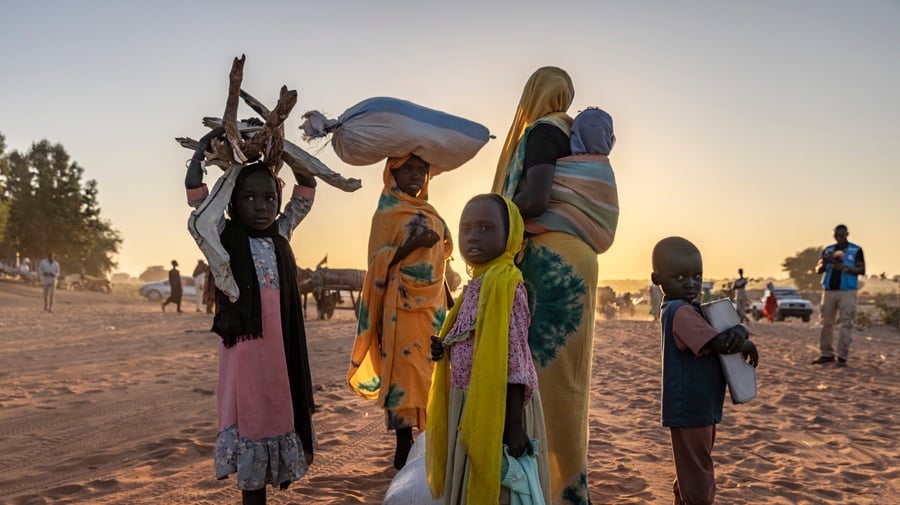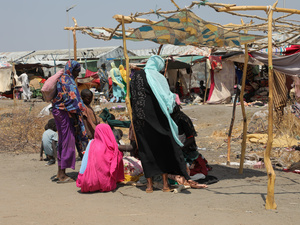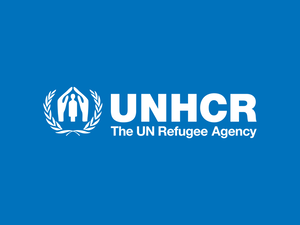Number of people uprooted by war at shocking, decade-high levels
Number of people uprooted by war at shocking, decade-high levels

Newly arrived Sudanese refugees are seen in the border town of Adre, in Chad. © UNHCR/Andrew McConnell
GENEVA – The number of people displaced by war, violence and persecution worldwide is untenably high, particularly as humanitarian funding evaporates, with the only bright spot being a pickup in returns, notably to Syria, UNHCR, the UN Refugee Agency, said today.
According to UNHCR’s annual Global Trends Report released today, there were 122.1 million forcibly displaced people by the end of April 2025, up from 120 million at the same time last year, representing around a decade of year-on-year increases in the number of refugees and others forced to flee their homes. The main drivers of displacement remain large conflicts like Sudan, Myanmar and Ukraine and the continued failure to stop the fighting.
Filippo Grandi, UN High Commissioner for Refugees, said: “We are living in a time of intense volatility in international relations, with modern warfare creating a fragile, harrowing landscape marked by acute human suffering. We must redouble our efforts to search for peace and find long-lasting solutions for refugees and others forced to flee their homes.”
Forcibly displaced people include people displaced within their own country by conflict, which grew sharply by 6.3 million to 73.5 million at the end of 2024, and refugees fleeing their countries (42.7 million people). Sudan is now the world’s largest forced displacement situation with 14.3 million refugees and IDPs, replacing Syria (13.5 million), and followed by Afghanistan (10.3 million) and Ukraine (8.8 million).
The report found that, contrary to widespread perceptions in wealthier regions, 67 per cent of refugees stay in neighbouring countries, and with low and middle-income countries host 73 per cent of the world’s refugees. Indeed, 60 per cent of people forced to flee never leave their own country.
While the number of forcibly displaced people has almost doubled in the last decade, funding for UNHCR now stands at roughly the same level as in 2015 amid brutal and ongoing cuts in humanitarian aid. This situation is untenable, leaving refugees and others fleeing danger even more vulnerable.
“Even amid the devastating cuts, we have seen some rays of hope over the last six months,” Grandi added. “Nearly two million Syrians have been able to return home after over a decade uprooted. The country remains fragile and people need our help to rebuild their lives again.” In total, 9.8 million forcibly displaced people returned home in 2024, including 1.6 million refugees (the most for more than 2 decades) and 8.2 million IDPs (the second highest ever).
Many of these returns, however, happened in an adverse political or security climate. For example, a large number of Afghans were forced to return to Afghanistan in 2024, arriving home in desperate conditions. In countries like the Democratic Republic of the Congo, Myanmar, and South Sudan, there were significant new forced displacements at the same time as the return of refugees and IDPs. The report calls for continuing funding of UNHCR programmes that save lives, assist refugees and IDPs returning home and reinforce basic infrastructure and social services in host communities, as an essential investment to regional and global security.









